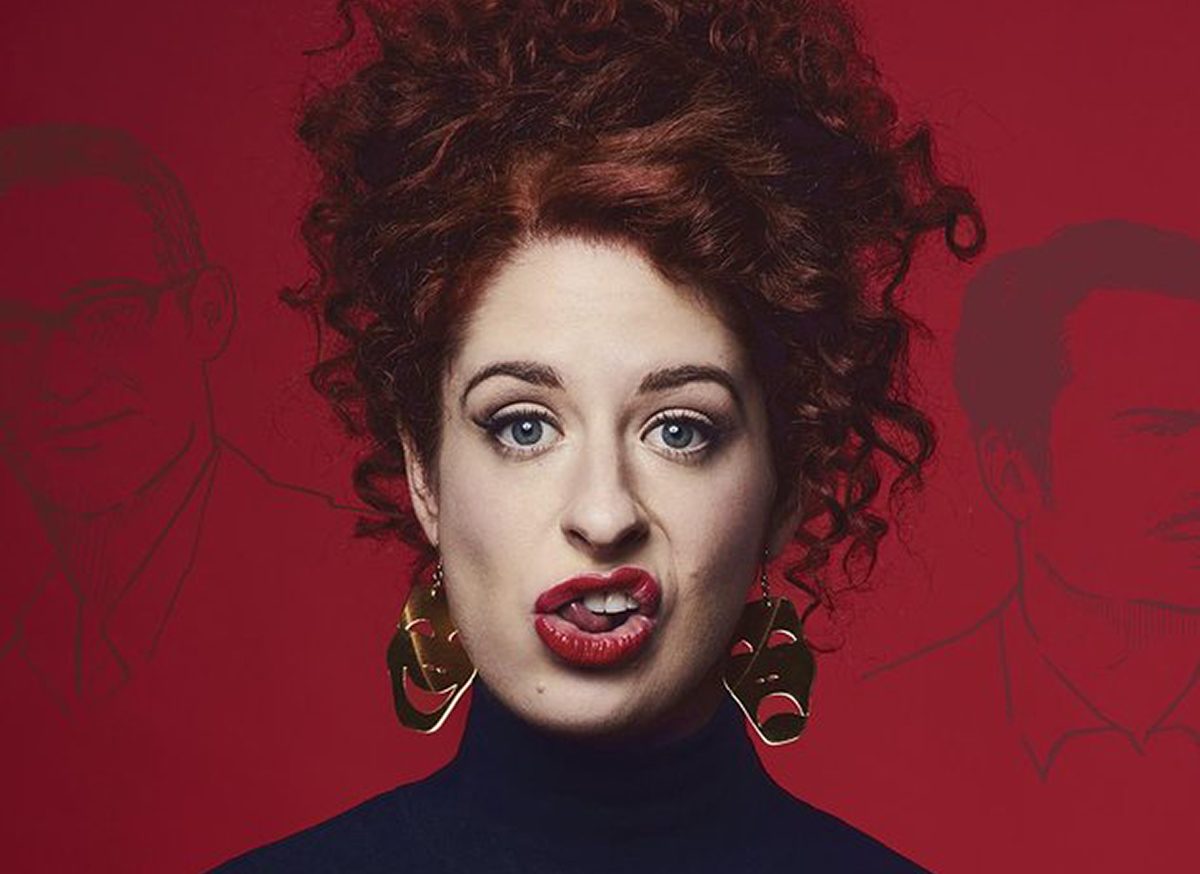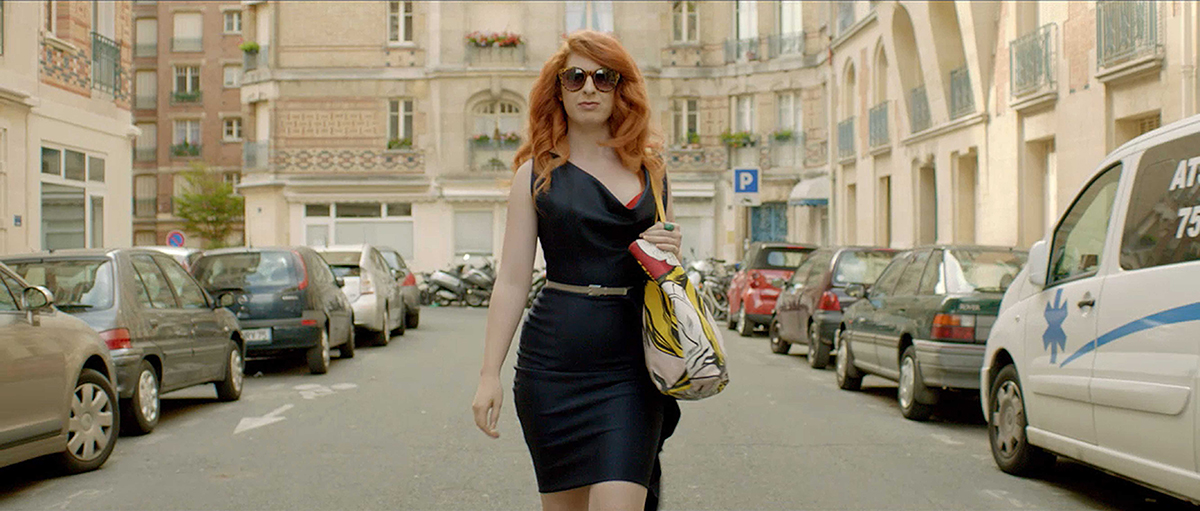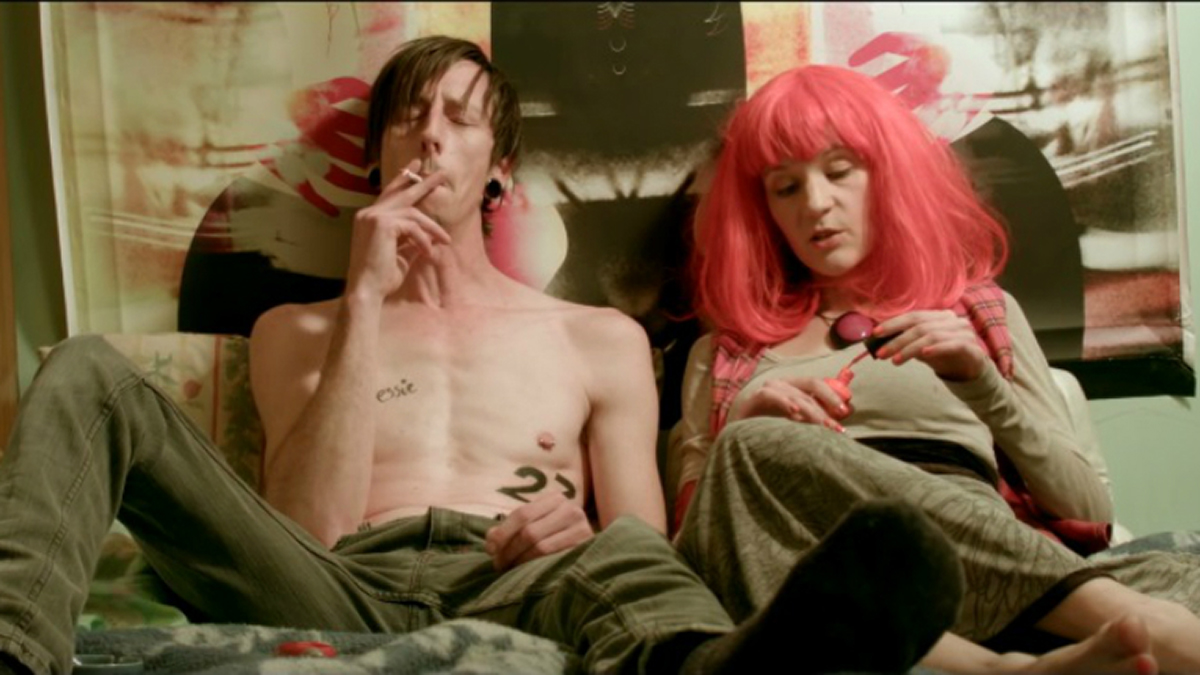
Australian-made in Paris
Written and directed by Sophie Mathisen, Drama (2016) focuses on a few days in the life of Australian actor Anna (Mathisen), trying to build a successful career in London, as she visits her friend Jean (Jonathan Burteaux) at his home in Paris. It’s a romantic comedy of sorts, and while the two key couples — Anna and her ex, Jean and his boyfriend — hit the rocks, the focus of the film is on the main relationship of two best friends. Inspired by autobiographical detail, Mathisen developed the idea for Drama while studying in London and wrote the script in 10 days. Without any filmmaking experience to her name, the experienced actor was unable to access government funding, so she and her sister, producer Dominique Mathisen, took the independent route. With crowdfunding in Australia, the UK and France in addition to private investment, Drama was produced by Australian company Little Sure Shots; so, despite the international spread it classifies as a film with local roots.
Without attachment to a funding body or distribution company, Drama was released on a platform called FanForce, which aims to generate momentum via social-media groundswell outside of the traditional marketing and publicity framework. FanForce invites interested film fans to curate their own screenings, sell tickets ahead of time and organise the venue. On the day of Drama’s first screening, it was also released on a number of online video-on-demand services. It has screened at festivals locally and internationally and is part of Virgin Australia’s inflight entertainment catalogue. This is a release structure that demands constant work with extremely limited resources, and is a great result for a small production.

DRAMA, Sophie Mathisen
Another Melbourne-based filmmaker working outside the government-funded market is Saara Lamberg, the Finnish-Australian writer, director, producer and star of Innuendo. Also made with crowdfunding and private investment, Innuendo won Best Narrative Feature Film at the Fine Arts Film Festival in Venice, California, and screened recently in the Cannes film market. These examples demonstrate that there are women who are very much making their own way in a male-dominated industry that might otherwise have no place for them.
Using apartments of crew members as sets and shooting on the streets of Paris without permits, the Mathisens made an Australian project that challenges the very construct of our national cinema. Drama contains none of the signifiers that we might expect of an Australian film — no panoramic landscapes, no mythological nation-building and hardly any distinctive antipodean accents. The film sometimes seems more like a pleasant French comedy, considering the perky French music accompanying shots of Gare du Nord train station as Anna arrives from London, and the very attractive Philippe (François Vincentelli) who owns a cheese shop.
Ultimately, Drama fails, partly because Anna demands so much screen time and does not invite empathy, and partly because of its tonally jarring rhythmic pop-aesthetic and an unengaging handheld camera. Any broad engagement with the complexities of gender performance and social roles is lost as Mathisen focuses on a very narrow range of dramatic incentives, and the film struggles to be more than a shallow facsimile of any number of other romantic comedies. It just doesn’t push beyond its mostly generic formula.

Innuendo, Saara Lamberg
Occasionally, Drama seems as though it might present some sharp criticism of men’s proclivity to command public space. For instance, there’s an uncomfortable scene where a stranger forces a woman to have a conversation with him. Anna’s ex-boyfriend, the smug, unfaithful John (Tom Wren), is textbook privileged cad. These men are disrespectful not only towards women, but to any person or societal structure that threatens to moderate their behaviour. And while they’re charmless, no one seems to punish them, a peculiar gap given that standing up to male control is exactly what the Mathisens are doing with their film’s approach to production.
Drama adds little to the cinematic understanding of Paris in its exploration of a foreign space envisioned through Anna’s uncertainty and dislocation. And while this isn’t an impressive first film, it remains essential that the industry continues to allow space for this kind of contribution. In fact, Sophie Mathisen was one of a group of members from the Women in Film and Television committee who staged the “End the Sausage Party” intervention at last year’s AACTA awards in protest at the poor representation of women in the industry. The film’s lasting image for me is of an earring that Anna wears to a nightclub, a gold mask of comedy, an insignia of her profession. It’s nice to think of this, as an indication that women in Australia will continue to perform and grow in number as creators in the film landscape.
–
Drama, writer, producer, director, Sophie Mathisen, co-producers Dominique Mathisen, Sophie Mathisen, cinematographer Cameron Ford, editors Julie-Anne De Ruvo, Katie Flaxman, composers Jonathan Dreyfus, Louis Gill, Kyle Grenell, Trent Grenell; Little Sure Shots, 2016
Eloise Ross is a writer, lecturer and film programmer in Melbourne, with research interests in sound studies, classical Hollywood and women’s art and cinema practices.
Top image credit: detail, Poster, DRAMA, Sophie Mathisen






